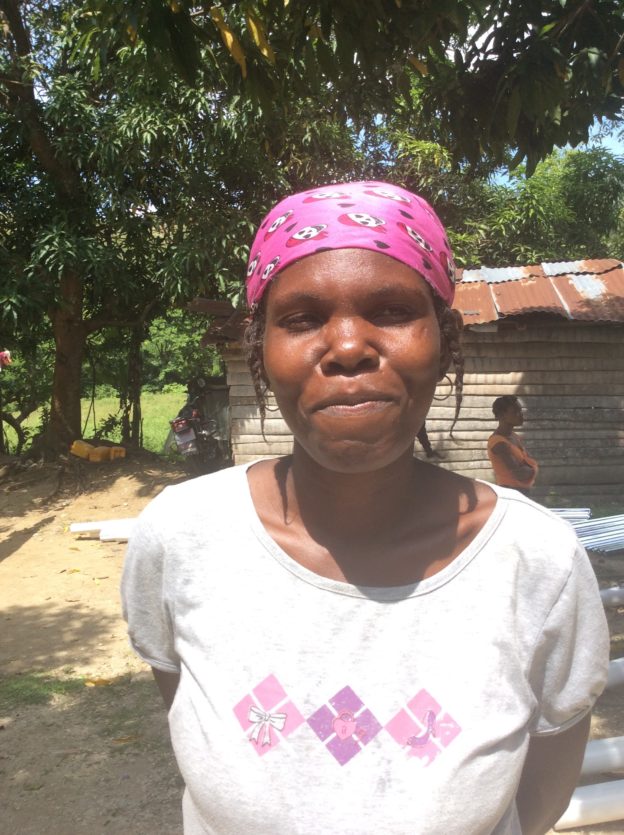Solène lives with her partner and their three children in a house that belongs to her mother-in-law. The older woman gave it to her son to live in with his family.
She grew up in Port au Prince, in a slum called Tokyo, where she lived with her aunt. Her parents were from Jeremie, in far southwestern Haiti, and they died when she was very young. She looks back fondly on her years with her aunt. She says she never was made to feel like anything but her aunt’s own child.
She first came to Kolonbyè as a teenager, when she and a friend from the area passed through on their way to look for work in the Dominican Republic. The other girl, however, abandoned her in Kolonbyè, running off with everything she brought with her. Solène had no choice but to stay with the girls mother. She knew no one else in the area, and had no way to get back to Port au Prince.
She stayed there until her first partner took her into his home. She lived with him for a while, but he was abusive. So she left him and moved in with her current partner.
She says that she was chosen for the program because the team saw that she was less capable than her neighbors. “Mwen pa gen lavni. Mwen pat ka pouse timoun yo.” “They saw that I have no future, that I didn’t have a way to push my children forward.”
She and her husband support their children with agricultural day labor when they can find the work. But it makes it hard to do much more than eat, when they can even afford food. “You have to find a way to help your children go to school so that they want to help you in the future, too.”
She listens carefully as we speak, and responds clearly, without difficulty.
Her hope is to buy a plot of land. She wants one of her own because she’s afraid that if something happens to her, her children will have trouble maintaining their claim to the land they’re on now.
